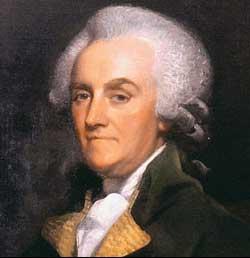Again, He that sells upon credit, asks a price for what he sells equivalent to the principal and interest of his money for the time he is likely to be kept out of it: therefore he that buys upon credit, pays interest for what he buys. And he that pays ready money, might let that money out to use; so that he that possesses any thing he has bought, pays interest the use of it.
還有,一個賒帳出售物品的人,對他所售貨物要求的價格相當于貨物的本錢加上他暫時不能利用的那筆錢的利息。因此,一個賒帳購買的人,要為他所買的貨物支付利息。而一個用現金購買的人,如果不買的話,是可以把那筆錢借給別人使用的。所以,一個擁有任何買來的東西的人,都要為使用這東西而支付利息。
Consider then when you are tempted to buy any unnecessary household stuff, or any superfluous thing, whether you will be willing to pay interest, and interest upon interest for it as long as you live; and more if it grows worse by using.
當你感到一種引誘,想要買任何并不急需的家用品,或任何不必要的東西的時候,你就要好好考慮一下,你是否愿意為它支付利息,并且終身為它利上加利;如果這東西是會用壞的,那末還要付得更多。
Yet, in buying goods, it is best to pay ready money, because, he that sells upon credit, expects to lose 5 percent by bad debts; therefore he charges, on all he sells upon credit, an advance that shall make up that deficiency.
然而,在買東西時,最好還是付現金,因為賒帳售物的人,估計由于吃倒帳會損失百分之五,所以把賒售的所有貨物都要加碼,以彌補這筆損失。
Those who pay for what they buy upon credit, pay their share of this advance.
那些賒帳購物的人,得支付他們所應分擔的這筆加碼的價款。
He that pays ready money, escapes or may escape that charge.
而用現金購物的人,則不需或可能不需支付這筆錢。
A penny saved is two pence clear;
省下的一便士是不折不扣的兩便士;
A pin a day is a groat a year.
每天節約一丁點兒一年就是一大筆。












